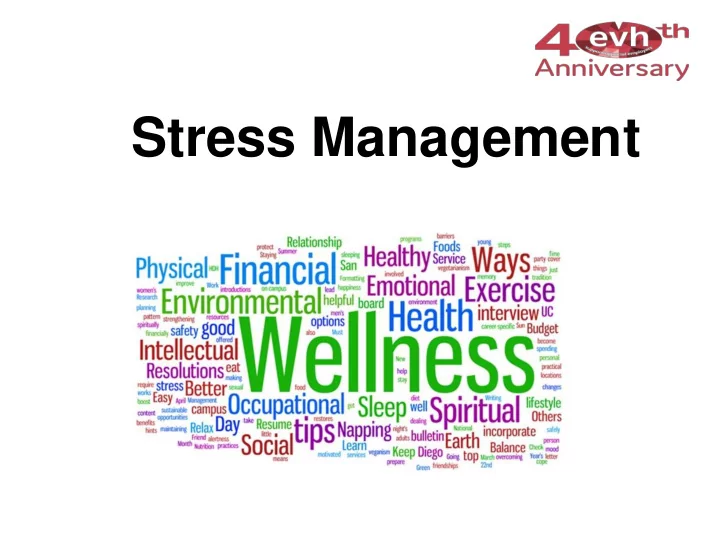

Stress Management
Aims of the session • What is Stress? • Recognising signs • The Policy • The Business Case : Why bother? • Importance of Everyone’s commitment • Questions
What is Stress? • “the adverse reaction people have to excessive pressure or other types of demand placed on them” How do we manage stress? The single most important thing you can do for stress https://www.youtube.com/watch?v=I6402QJp52M
Recognising Signs Physical Emotional Behavioural • Heart disease • Sleeping problems • Anxiety • High blood pressure • Short temper • Depression • Breathing difficulties • Avoidance/ withdrawal • Panic attacks • Skin complaints • Self medicate • Low self esteem • Stroke • Guilt • Ulcers • Nervous • Chest pain
Stress Management Policy Does your organisation have a stress policy? • Do you know it? • Have you seen it? • Is it followed? Purpose of the policy? • Increase awareness of stress • Provide a clear process • Set out expectations of both employee/employer Legal Obligations • H&S at Work Act (1974) • Management of H&S at work Regulations
You & Your Organisation
Responsibilities Employer Employee Organise stress awareness training Recognise your own signs of stress for all staff including managers Be able to recognise the signs of Participate in proactive activities to help stress manage your stress levels Manage staff effectively and be aware Assess your own lifestyle of workload Manage the situation as soon as it Raise concerns with your manager arises Contribute to the discussion and Participate in the process employee’s questionnaire Encourage and join in on pro active activities to manage and reduce stress
Stress Management Standards • Demands • Control • Support • Role • Change • Relationships
Proactive Measures
Reactive Measures • Individual Stress Questionnaire • Process • Occupational Health • Employee Counselling
Summary & Questions
Recommend
More recommend